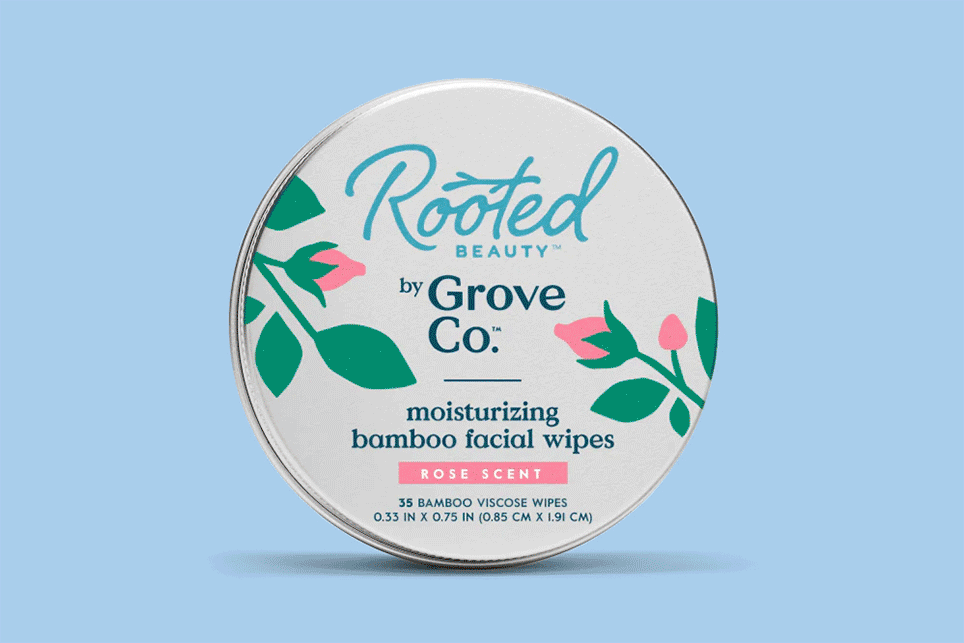
6 Supplements You Shouldn’t Take If You Get Migraines, According to Dietitians
A migraine is far more than a typical headache. It’s a throbbing, all-consuming head pain that is often accompanied by nausea, light sensitivity, smell aversions and the inability to tolerate sound. While medications are often a go-to for relief, many turn to supplements for a natural fix. But here’s the catch: Not all supplements help relieve migraines. Some can actually make the pulsating worse.
Migraines are pretty common, with nearly 1 out of every 7 people globally experiencing migraines, with episodes lasting anywhere from hours to days. While the symptoms listed above are the most usual ones, they aren’t the only ones. You may also be met with dizziness, vomiting and sometimes visual disturbances.
We spoke with several registered dietitians to get the rundown on which supplements you shouldn’t take to manage migraine symptoms.
1. Butterbur
Butterbur is a large-leafed plant native to Europe and parts of Asia and North America. The American Academy of Neurology once promoted it as an effective herbal supplement for reducing the severity and frequency of migraines. However, it is no longer recommended due to serious safety concerns.
“While there is good research supporting its ability to help with migraine, there are concerns for liver injury when using this supplement due to the [toxic] pyrrolizidine alkaloids (PAs) it contains,” says Kelli Yates, RDN, a registered dietitian who specializes in migraines. PAs are naturally occurring toxins that may also damage the lungs and cause cancer. Although PA-free versions are available on the market, Yates explains that they still contain a significant amount of pyrrolizidine alkaloids when tested. Therefore, the risks of taking them may outweigh the potential benefits.
2. Pre-Workout Supplements
Pre-workout supplements are popular for enhancing exercise performance and recovery, but they can also trigger migraines. “Pre-workout supplements are risky because they tend to contain a number of different ingredients people with migraines are sensitive to, such as caffeine, the vasodilators L-arginine and L-citrulline and artificial sweeteners,” says Nicole Reeder, P.h.D., RD, a registered dietitian and nutrition researcher specializing in helping women with migraine.
“Vasodilators such as L-arginine and L-citrulline cause your blood vessels to expand by increasing nitric oxide in the body,” Reeder explains. While this is useful during exercise, as increased blood flow helps to deliver oxygen and nutrients to muscles, Reeder emphasizes that vasodilation also occurs during migraine attacks. She adds that most pre-workouts also contain artificial sweeteners and caffeine, which are often linked to worsened migraines.
3. St. John’s Wort
“St. John’s Wort is an herbal supplement commonly used to manage anxiety and depression. However, it can interact dangerously with several medications, including some used for migraine treatment,” says Kat Durston, RDN, a registered dietitian nutritionist. She explains that it specifically interacts with a class of migraine drugs called triptans, which can increase the risk of serotonin syndrome, a life-threatening condition.
“It may also cause side effects like photosensitivity, hallucinations and agitation, all of which are already common among people with migraines,” she emphasizes. For these reasons, she says it’s best to avoid using St. John’s Wort if you experience migraines regularly.
4. Caffeine-Containing Supplements
Caffeine, a well-known stimulant that impacts the nervous system, may contribute to the onset of migraines for some people. Many supplements designed for focus, energy and athletic performance contain caffeine-rich ingredients like green tea extract, coffee bean extract, guarana and yerba mate.
“The relationship between caffeine and migraine is complicated and differs from individual to individual. One thing that holds true for nearly everyone with migraine is that sudden changes in caffeine intake and excess caffeine are almost certain to trigger a migraine,” says Reeder. While caffeine may occasionally help thwart an acute migraine attack when combined with pain relievers, Reeder warns that people with migraine should aim to keep their daily intake at less than 200 milligrams a day. She highlights that caffeine tablets, in particular, are best avoided because they can increase the risk of migraines due to excessive intake or withdrawal symptoms.
5. 5-HTP
“5-Hydroxytryptophan (5-HTP) is a supplement commonly used for depressed mood, sleep issues and migraine,” says Yates. She explains that it works by helping your body produce more serotonin, a neurotransmitter involved in regulating these conditions. However, she cautions that 5-HTP may not be safe for some individuals with migraines because many migraine medications also affect serotonin levels. Similar to St. John’s Wort, Yates adds that taking 5-HTP supplements could result in life-threatening serotonin syndrome. To be on the safe side, you should always talk to your health care provider before using this supplement alongside migraine medications.
6. Supplements with Artificial Sweeteners
Aspartame and sucralose, two common artificial sweeteners, are widely used in sugar-free supplements, protein powders, green powders and pre-workout formulas. These sneaky sugar alternatives may be unexpected culprits behind your migraines. Durston recommends avoiding supplements containing these artificial sweeteners, as they offer little nutritional benefit aside from enhancing taste without adding significant calories.
“Some older studies have linked these sweeteners to migraines and headaches, though more research is needed in this area,” says Durston. Still, researchers believe that aspartame may influence neurotransmitters and brain chemistry, potentially triggering headaches and worsening migraine symptoms. As such, “limiting your intake may help reduce symptoms, so it’s worth paying attention to how your body responds,” she advises.
Tips for Relieving Migraines
Dealing with migraines can be a pain, but there are practical steps you can take to ease the discomfort. From natural remedies to lifestyle changes, all three dietitians recommend the following tips to help you find relief and reduce migraine frequency.
- Journal your triggers and symptoms: “Migraine triggers are highly individualized. Keeping a food and symptom log can be extremely useful for identifying potential trigger foods and patterns,” says Durston. She shares that common triggers include chocolate, processed meats, alcohol and aged cheese. “You’ll be able to recognize a trigger if it causes migraine symptoms within 12-24 hours of eating.”
- Balance your blood sugar levels: Blood sugar imbalances can trigger migraines in some people. “Eating regularly spaced meals throughout the day that contain a good balance of protein, carbs, fiber, and fats can keep blood sugar stable,” says Yates.
- Address any nutritional deficiencies: Yates explains that many common vitamin and mineral deficiencies, such as vitamin D, can make migraine harder to manage. “Having your levels of these vitamins and minerals checked on a regular basis can help you catch (and treat) deficiencies early before they begin to trigger attacks.”
- Keep a consistent schedule: “Going to bed at the same time every night, waking up at the same time every morning, and eating meals around the same time every day can help reduce attacks,” says Yates.
The Bottom Line
When it comes to managing migraines, it’s important to choose your supplements wisely. While some may offer relief, others could actually make things worse. Supplements to steer clear of include butterbur, pre-workout supplements, St. John’s Wort, caffeine-containing supplements, 5-HTP and those containing artificial sweeteners. However, you should keep in mind that what triggers a migraine attack in one person may not trigger another. Therefore, other strategies like keeping a journal of your triggers, addressing nutritional deficiencies and balancing blood sugar levels can also support migraine relief. Most importantly, you should always consult your health care provider before beginning a new supplement regimen.










